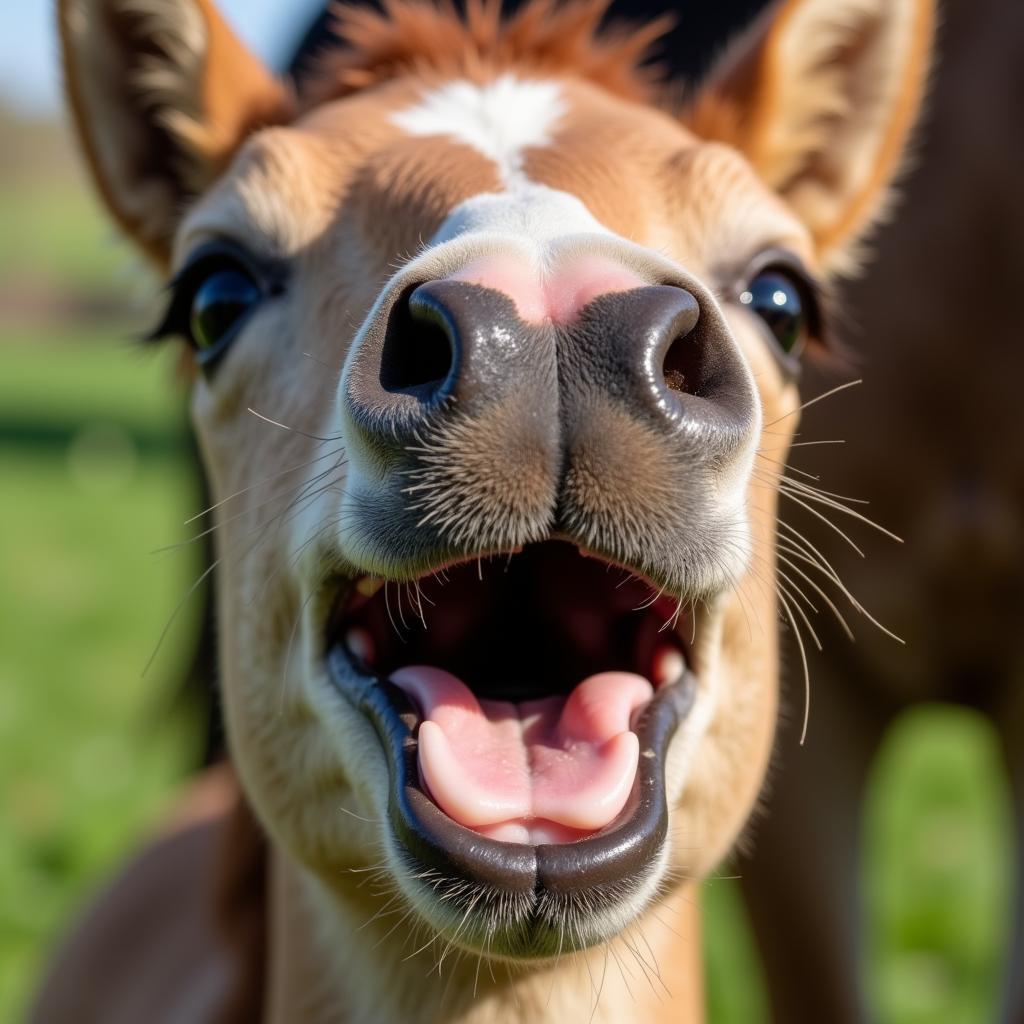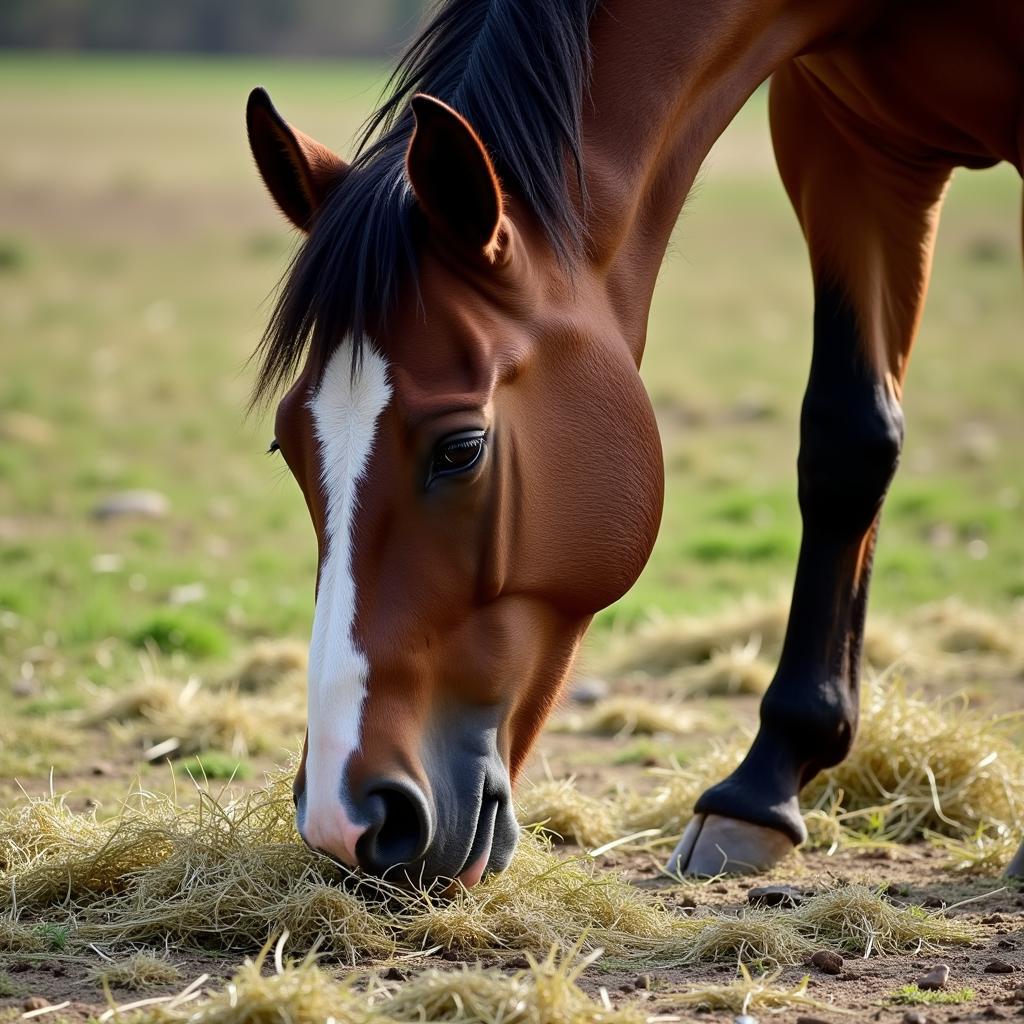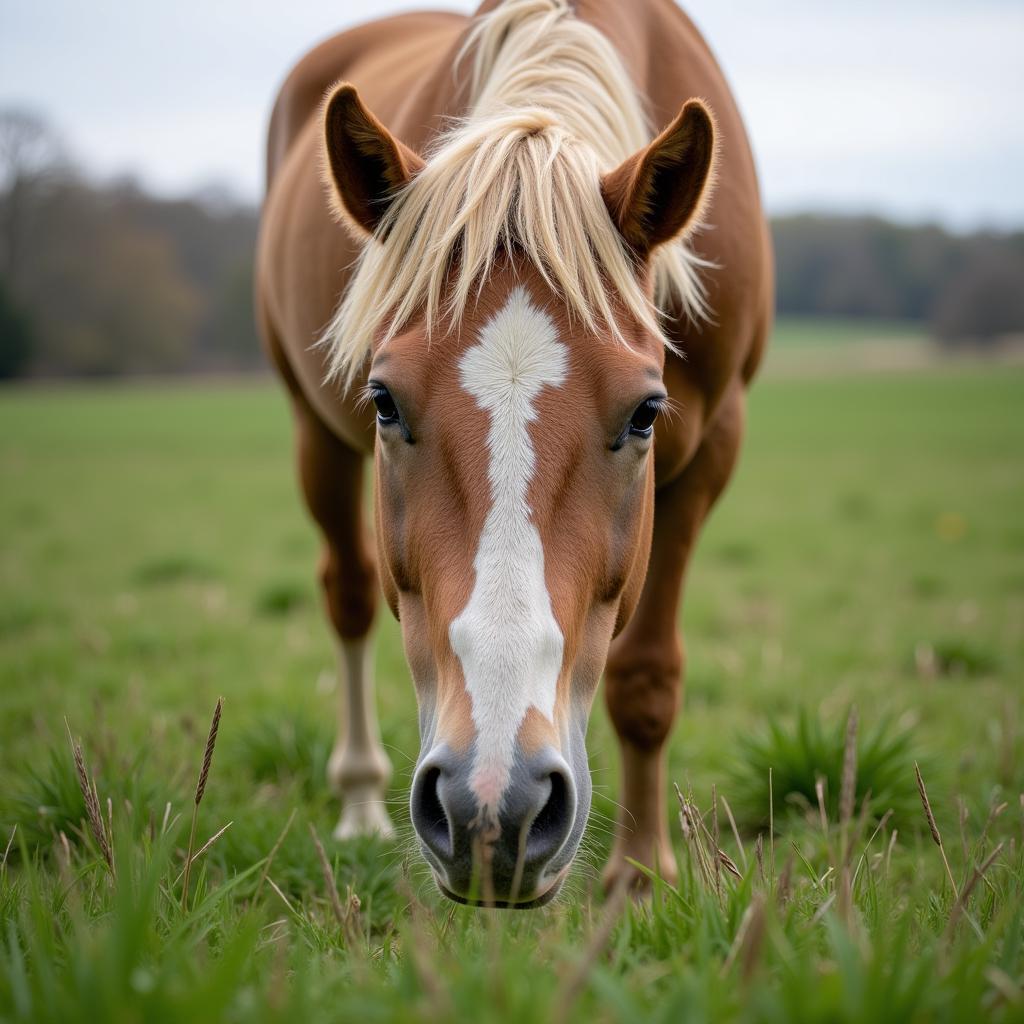Parrot mouth, also known as overbite, is a common dental condition in horses where the upper jaw protrudes significantly beyond the lower jaw. This misalignment can impact a horse’s ability to graze effectively and can lead to other dental problems if left unaddressed. Understanding the causes, symptoms, and treatment options for parrot mouth is essential for any horse owner.
What Causes Parrot Mouth in Horses?
Parrot mouth can be congenital, meaning a horse is born with it, often due to genetic factors. Breed predispositions can exist, though any horse can be affected. Environmental factors during development in the womb can also play a role.  Congenital Parrot Mouth in a Foal Acquired parrot mouth, though less common, can develop later in life due to uneven wear of the teeth or trauma to the jaw. Nutritional imbalances during a horse’s growth period have also been implicated.
Congenital Parrot Mouth in a Foal Acquired parrot mouth, though less common, can develop later in life due to uneven wear of the teeth or trauma to the jaw. Nutritional imbalances during a horse’s growth period have also been implicated.
Recognizing the Symptoms of Parrot Mouth
The most obvious symptom of parrot mouth is the visible overbite. However, other signs may include difficulty grazing, dropping food (quidding), and uneven wear patterns on the teeth.  Horse with Parrot Mouth Eating You might also notice your horse losing weight or experiencing performance issues. Some horses with parrot mouth may develop sharp enamel points on their teeth due to the abnormal chewing motion. horse overbite
Horse with Parrot Mouth Eating You might also notice your horse losing weight or experiencing performance issues. Some horses with parrot mouth may develop sharp enamel points on their teeth due to the abnormal chewing motion. horse overbite
Treatment Options for Parrot Mouth in Horses
Treatment for parrot mouth depends on the severity of the condition and the age of the horse. In foals, early intervention with specialized dental floats can sometimes correct the problem as the jaw is still developing. For older horses, regular dental care is essential to manage the condition and prevent further complications. This may involve floating the teeth more frequently to address uneven wear and sharp points.
Managing Parrot Mouth with Regular Dental Care
Regular dental checkups are crucial for horses with parrot mouth. Your equine veterinarian or a qualified equine dental technician can perform regular “floating,” a process that files down sharp edges and irregularities on the teeth. This helps ensure your horse can chew properly and minimizes discomfort.
Nutritional Considerations for Horses with Parrot Mouth
Horses with parrot mouth may require adjustments to their diet to ensure they can effectively take in the necessary nutrients. Providing easily digestible feed, such as chopped hay or soaked feed pellets, can make it easier for them to eat.
Living with Parrot Mouth: Long-Term Management
While parrot mouth cannot always be completely cured, it can be effectively managed with proper dental care and dietary adjustments. Consistent monitoring and professional guidance are key to ensuring a horse with parrot mouth can lead a comfortable and productive life.  Senior Horse with Managed Parrot Mouth
Senior Horse with Managed Parrot Mouth
“Early diagnosis and intervention are crucial for managing parrot mouth effectively,” advises Dr. Emily Carter, DVM, an equine dentistry specialist with over 20 years of experience. “Regular dental care can significantly improve the horse’s quality of life and prevent further complications.”
Conclusion
Parrot mouth, though a potentially challenging condition, can be successfully managed with appropriate care. Recognizing the symptoms, understanding the causes, and seeking professional guidance are essential steps in ensuring the well-being of a horse with this dental abnormality. Regular dental checkups, dietary adjustments, and a proactive approach are key to helping your horse thrive despite having parrot mouth. horse overbite
FAQ
- Is parrot mouth hereditary in horses?
- Can parrot mouth be cured in adult horses?
- How often should a horse with parrot mouth have its teeth floated?
- What are the long-term health risks associated with untreated parrot mouth?
- Can a horse with parrot mouth still be ridden?
- What types of feed are best for horses with parrot mouth?
- How can I tell if my horse’s parrot mouth is causing them pain?
“In my experience, many owners underestimate the impact of parrot mouth on a horse’s overall well-being,” adds Dr. Carter. “Addressing this condition proactively can significantly improve a horse’s comfort and ability to thrive.”
For further assistance, please contact us at Phone Number: 0772127271, Email: [email protected] Or visit us at: QGM2+WX2, Vị Trung, Vị Thuỷ, Hậu Giang, Vietnam. We have a 24/7 customer support team.